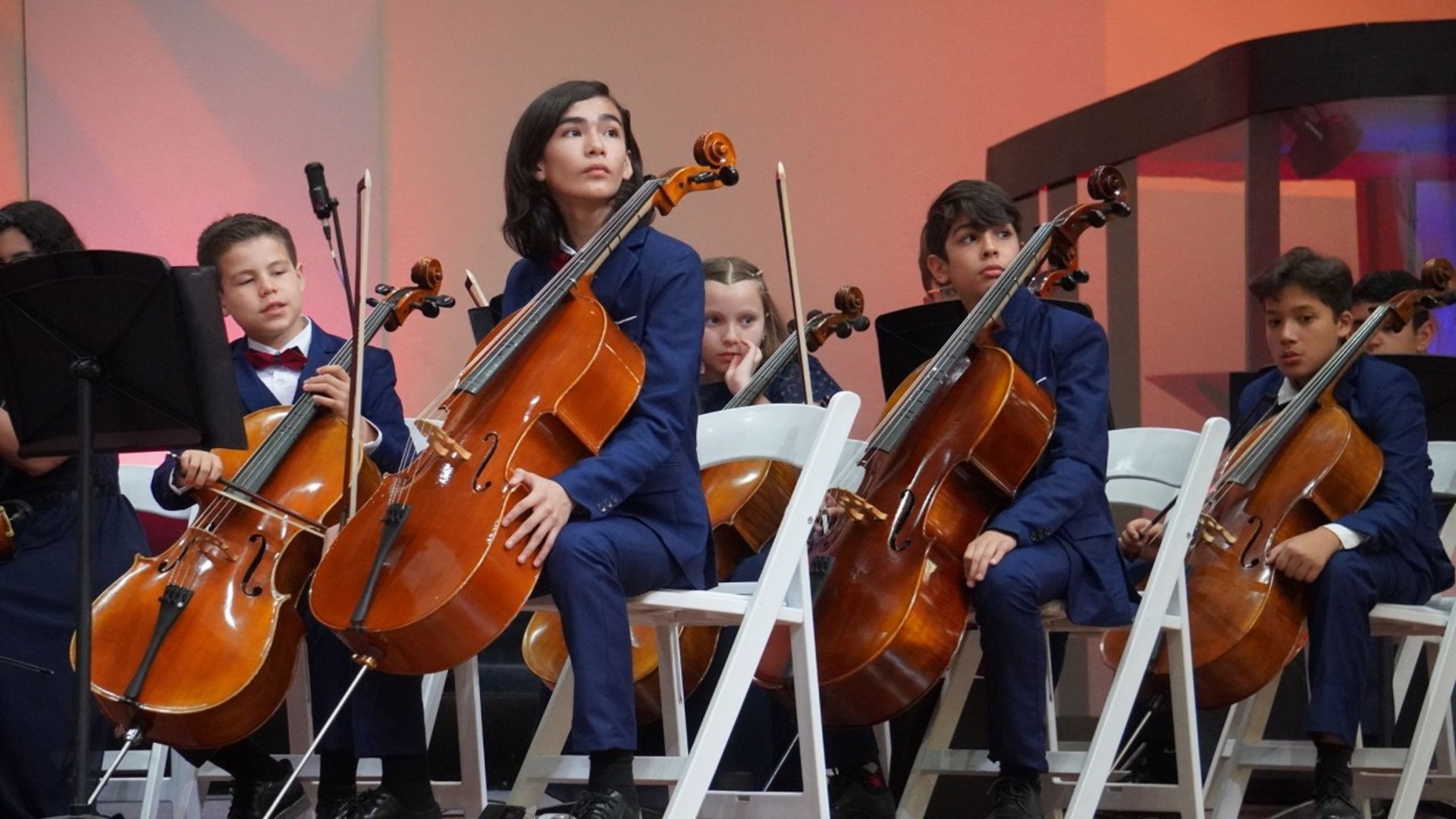
Why Music Is the Best After-School Activity for Children
In today's fast-paced world, after-school activities play a vital role in a child’s development. These activities not only keep children engaged and productive but also enhance their cognitive, emotional, and social well-being. Among the wide array of options — from sports to academic clubs to art classes — music stands out as one of the most beneficial after-school pursuits. Whether it's learning an instrument, singing in a choir, or participating in a school band, music offers unmatched advantages that foster a child’s holistic development.
Sugander Santhapuri
5/31/20255 min read


This blog explores in-depth why music is the best after-school activity for children, backed by research, expert opinions, and real-life examples.
1. Music Enhances Cognitive Development
Boosts Brain Function
Numerous studies have shown that music education significantly enhances brain development in children. Learning music involves complex cognitive processes — reading musical notation, coordinating movement, and recognizing patterns. This multi-sensory experience strengthens neural connections, especially in areas responsible for language, memory, and reasoning.
A study by the University of Southern California's Brain and Creativity Institute revealed that music training accelerates brain development in young children, particularly in the areas of the brain responsible for processing sound, language development, speech perception, and reading skills.
Improves Academic Performance
Children involved in music often perform better in school. Music stimulates the same parts of the brain used in math, science, and reading. Students who participate in music programs tend to have higher IQs and score better on standardized tests. A report by the Arts Education Partnership found that students in high-quality music programs score 22% higher in English and 20% higher in math.
Enhances Memory and Attention
Playing a musical instrument or singing requires a high level of concentration and memorization. Children must remember notes, lyrics, timing, and rhythms. This constant mental exercise sharpens memory and improves attention span, which positively affects academic and daily life activities.
2. Music Develops Emotional Intelligence
Builds Emotional Awareness
Music is an emotional language. It allows children to express feelings they might not yet have the words for. By engaging with different genres and styles, children learn to identify and understand emotions, both in themselves and others.
Stress Relief and Emotional Outlet
After a long day at school, music can be a therapeutic outlet. Whether it's playing the piano, strumming a guitar, or singing their heart out, children can release pent-up emotions and feel more relaxed. Music helps lower cortisol levels (the stress hormone), promoting emotional well-being.
Encourages Self-Expression
Music empowers children to express their identity and creativity. Writing songs, improvising melodies, or interpreting a piece in their own way gives them a sense of ownership and individuality. This freedom to express can boost self-esteem and confidence.
3. Music Teaches Discipline and Patience
Fosters Consistent Practice Habits
To master an instrument or improve vocal skills, children must practice regularly. This instills a strong sense of discipline and work ethic. They learn that improvement comes through consistent effort, not instant results — a valuable life lesson.
Cultivates Patience and Perseverance
Learning music isn't easy. It takes time to develop technique, memorize pieces, and perform confidently. Children learn to embrace challenges, handle mistakes, and persevere through setbacks. These qualities translate into other areas of life, including academics and relationships.
Time Management Skills
Balancing school, homework, and music practice teaches children how to manage their time effectively. They learn to prioritize tasks and allocate their time wisely — a skill they’ll use throughout life.
4. Music Enhances Social Skills and Teamwork
Builds Strong Peer Relationships
Whether it’s a school band, orchestra, or choir, music often involves collaboration. Working towards a common goal — like a performance — fosters camaraderie and mutual respect among peers.
Encourages Cooperation and Listening
Ensemble playing requires careful listening, coordination, and cooperation. Children learn to blend their sound with others, take turns, and follow a conductor’s lead. These interactions improve their ability to work in teams and respect others' perspectives.
Boosts Communication Skills
Music helps children become better communicators. They not only learn to express themselves emotionally but also develop verbal and non-verbal communication skills, such as body language and facial expressions, especially in performance settings.
5. Music Builds Confidence and Self-Esteem
Performance Opportunities
Recitals, concerts, and school competitions offer children a platform to showcase their hard work. Performing in front of an audience helps overcome stage fright and boosts public speaking skills.
Sense of Achievement
Learning a new song, mastering a difficult piece, or earning praise from a teacher builds a sense of accomplishment. This positive reinforcement boosts confidence and motivates children to take on new challenges.
Recognition and Validation
Music students often receive recognition in the form of applause, awards, or even simple compliments from family and friends. These moments validate their efforts and encourage them to keep growing.
6. Music Encourages Creativity and Innovation
Fosters Original Thinking
Music isn't just about replication — it’s about creation. Children who compose, improvise, or interpret music develop originality and creative thinking. These skills are essential in today’s innovation-driven world.
Encourages Exploration
Music exposes children to different cultures, instruments, and genres. It encourages them to explore new ideas and step out of their comfort zones, leading to a more open-minded and curious outlook on life.
Promotes Problem-Solving
When learning music, children constantly make decisions — from finger placement to dynamics and phrasing. This trains them to think critically, analyze situations, and make informed choices.
7. Music Offers Lifelong Benefits
A Skill for Life
Unlike many childhood activities that fade with time, music can be a lifelong companion. Children who learn music early are more likely to continue enjoying or playing music as adults, whether as a hobby or a profession.
Career Opportunities
Music opens doors to various careers — from performers and composers to music teachers, producers, and therapists. Even if a child doesn’t pursue music professionally, the skills gained (discipline, creativity, collaboration) are valuable in any career.
Enhances Quality of Life
Music is a source of joy, comfort, and connection. People who engage with music tend to be happier, more connected socially, and mentally healthier. Teaching children music sets the foundation for a richer life.
8. Music Is Inclusive and Accessible
Suitable for All Ages and Abilities
Music is an inclusive activity. Whether a child is 4 or 14, neurotypical or neurodiverse, music adapts to their unique pace and style. It’s accessible to children with special needs and can be customized for therapeutic benefits.
Affordable Options
While some music lessons or instruments can be expensive, there are many budget-friendly or free options — online tutorials, school programs, or community centers. Unlike some activities requiring costly gear or travel, music can be learned and practiced at home.
Flexible Learning Formats
Music learning is versatile — children can take private lessons, join group classes, or learn through apps and virtual platforms. This flexibility makes it easy to fit into busy family schedules.
9. Music Strengthens Family Bonds
Shared Musical Experiences
When children learn music, families often participate — attending performances, practicing together, or simply listening at home. These shared experiences create lasting memories and stronger emotional bonds.
Encourages Parental Involvement
Parents who support their child’s musical journey — through encouragement, attending lessons, or practicing together — become more involved in their child’s growth and interests. This involvement fosters trust and communication.
Celebrating Milestones Together
Each recital, certificate, or new song learned becomes a family celebration. These moments help children feel loved, supported, and motivated.
10. Music Helps Children Stand Out
Unique Talent
In a world where children often follow similar academic paths, music gives them a unique edge. It distinguishes them during school applications, college admissions, and even job interviews by showcasing creativity and discipline.
Builds Leadership Skills
Children who excel in music often take leadership roles — leading a section, mentoring peers, or even conducting. These opportunities develop confidence, responsibility, and initiative.
Offers Global Opportunities
Music transcends language and borders. Children who learn music can connect with global communities, attend international competitions or workshops, and even study abroad in prestigious conservatories.
Conclusion
While sports, arts, and academic clubs all offer valuable experiences, music encompasses a wide range of benefits that nurture a child’s mind, body, and soul. From enhancing brain development and academic performance to building emotional intelligence, discipline, and social skills, music truly is the best after-school activity for children.
It is not just an extracurricular activity — it’s a powerful tool for lifelong growth and fulfillment.
Whether your child dreams of becoming a musician or just wants to try something new, giving them the gift of music is one of the most impactful decisions you can make as a parent.
Start today. Let music be the melody of your child’s future.


